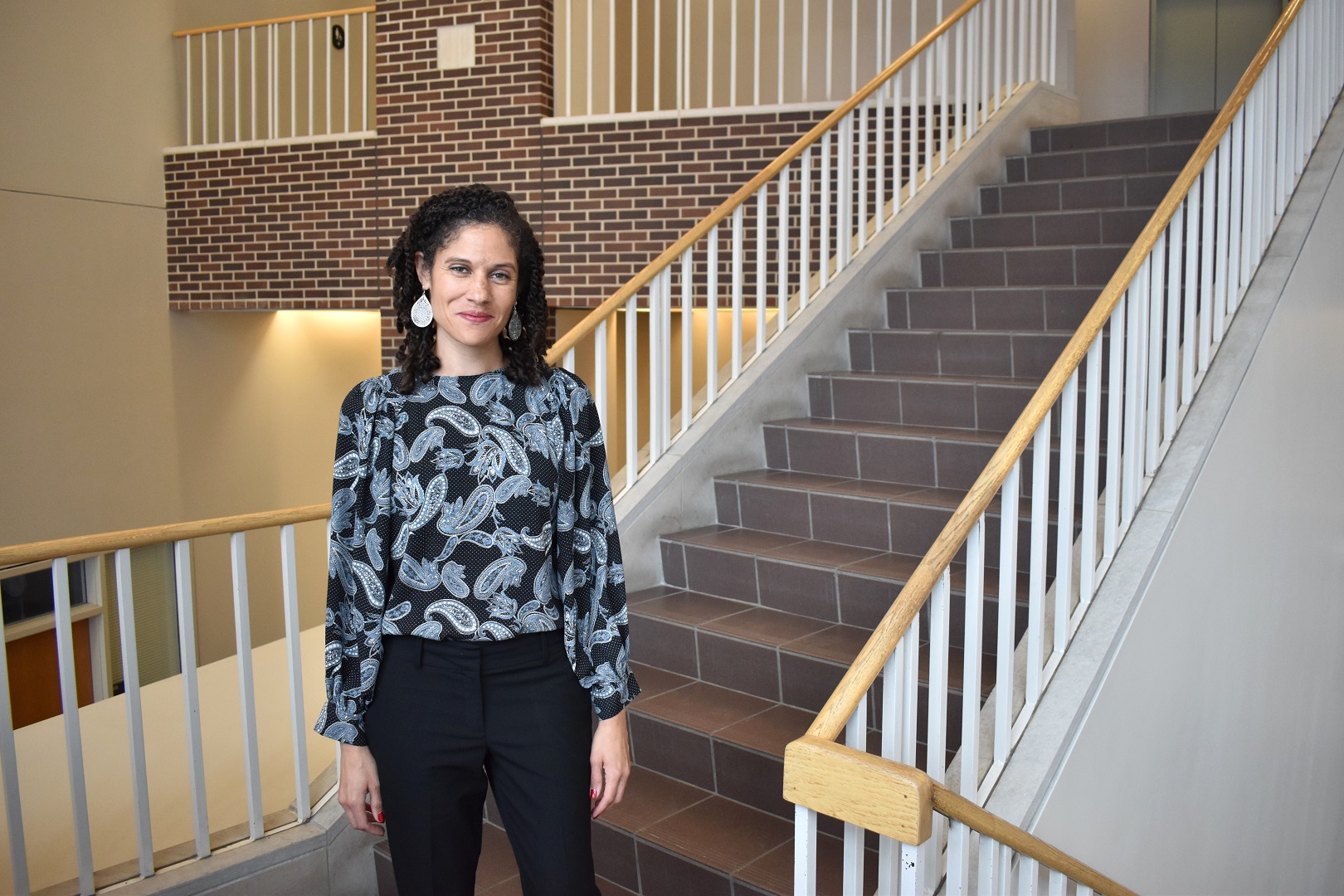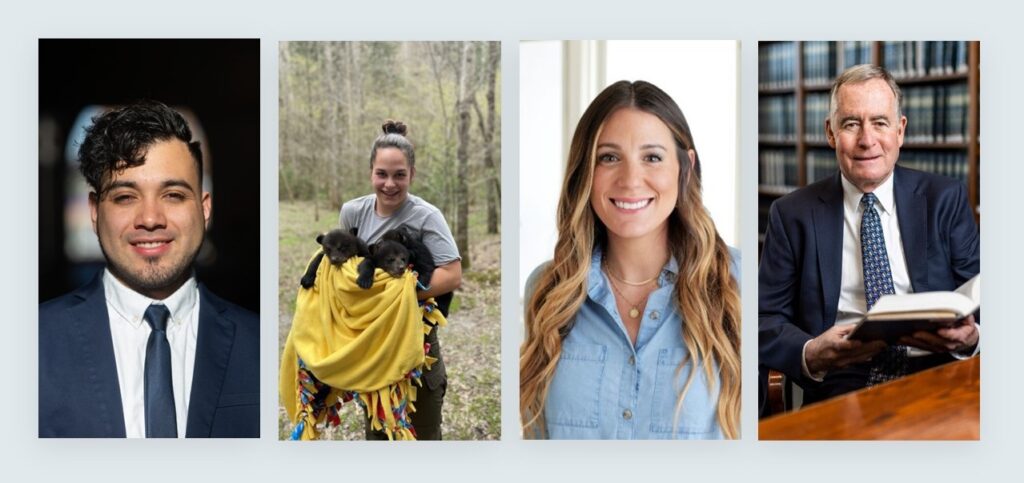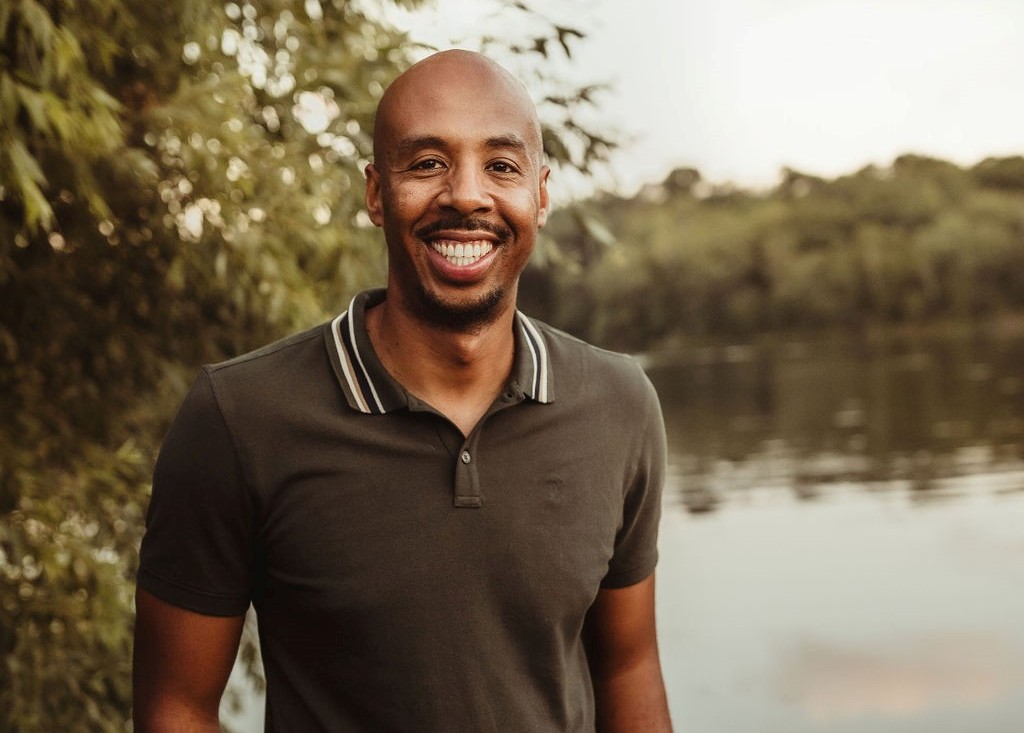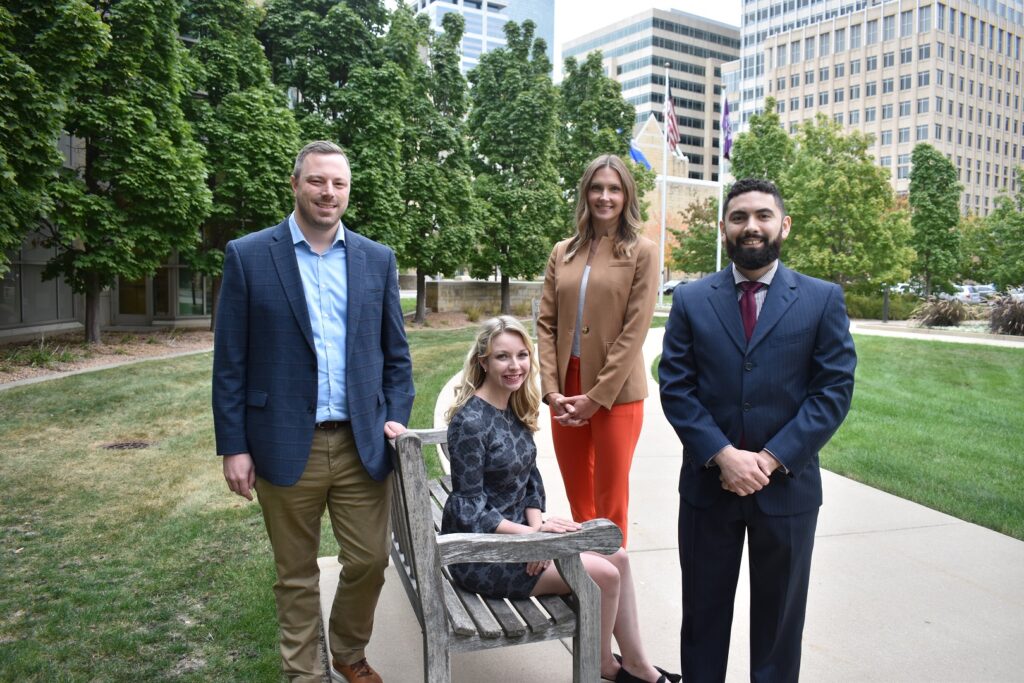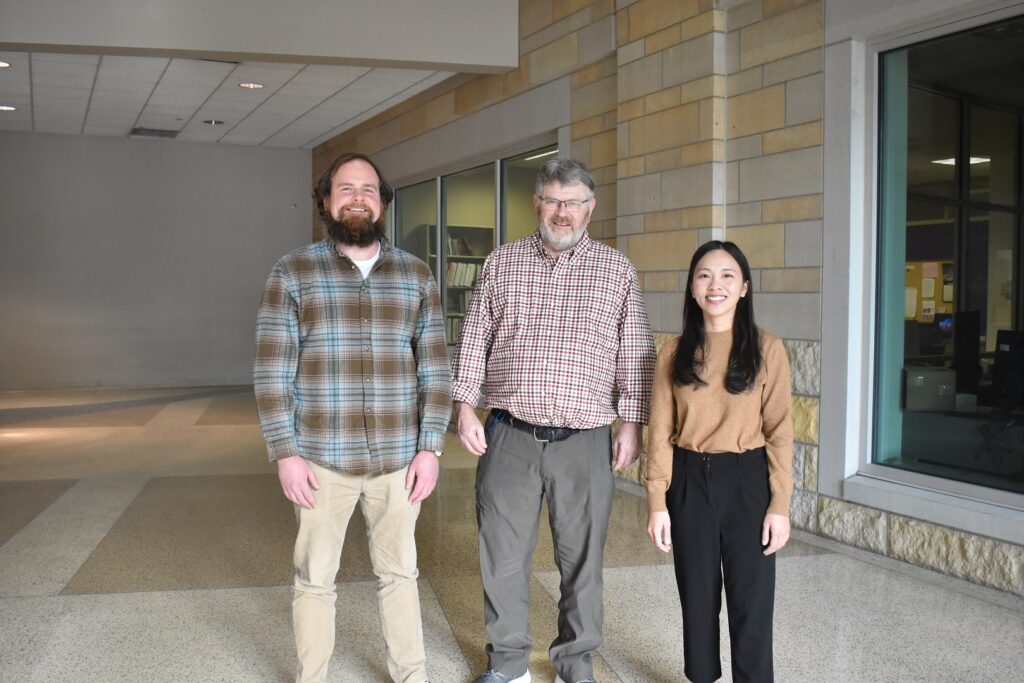Amanda Harrington ’19 J.D. is the manager of Be@School, a program of the Hennepin County Attorney’s Office (HCAO) that works to address the barriers to school attendance for K-12 students. Its goal is to keep students out of the juvenile justice system for violating compulsory education laws by facilitating early interventions and providing services. The program operates under the very simple principle that students can’t learn if they aren’t in school. It recognizes that education is a critical pathway to success in life, which makes intervention for school attendance important.
Harrington’s current role allows her to help children, something she learned she loved to do early in her career. After earning a bachelor’s degree from the College of St. Catherine in St. Paul, Harrington worked in social service organizations before pursuing a Master of Social Work degree from the University of Minnesota in 2006. She worked as a social worker for many years, most recently in Minneapolis Public Schools, before deciding to go to law school at the University of St. Thomas.
How did you come to lead the Hennepin County Be@School program?
I was matched with the Hennepin County Attorney’s Office as a 1L through the Hennepin County Bar Association Diversity Law Clerk Program. I went on to clerk for the HCAO and during my first summer, I worked in the Child Protection Division. Be@School is housed in that department, and I got to know the staff, and quickly saw how my two worlds intersected. My job with Minneapolis Public Schools was to work with the new social workers, so I used the relationships I built with Be@School to strengthen the relationship between the two programs.
After law school I continued working for HCAO as a prosecutor in the Juvenile Prosecution Division. However, I missed working with social workers and asked to join the Child Protection Division. Around the same time, Be@School’s longtime program manager retired and the office asked me to fill in temporarily. One and a half years later, that temporary position became permanent and I’m thrilled beyond words to be able to use all my professional skills every day.
Is there a recent Be@School program milestone or accomplishment of which you are particularly proud?
During COVID, Be@School stopped using truancy court as an intervention because all the courts had shut down. The program has made a conscious decision not to restart truancy court in Hennepin County. As a program, we believe that attendance is a symptom of underlying barriers. The judicial system, while well intentioned, is not set up to address those barriers. Legal consequences for truancy include community service, paying a fine and suspending a student’s driver’s license. These consequences don’t address the most common underlying barriers to school attendance such as poverty, mental health or a lack of connection to the school community. Instead of punitive measures, Be@School is focused on what other services we can provide for families, including connecting youth to well-paying jobs, mentorship and service coordination.
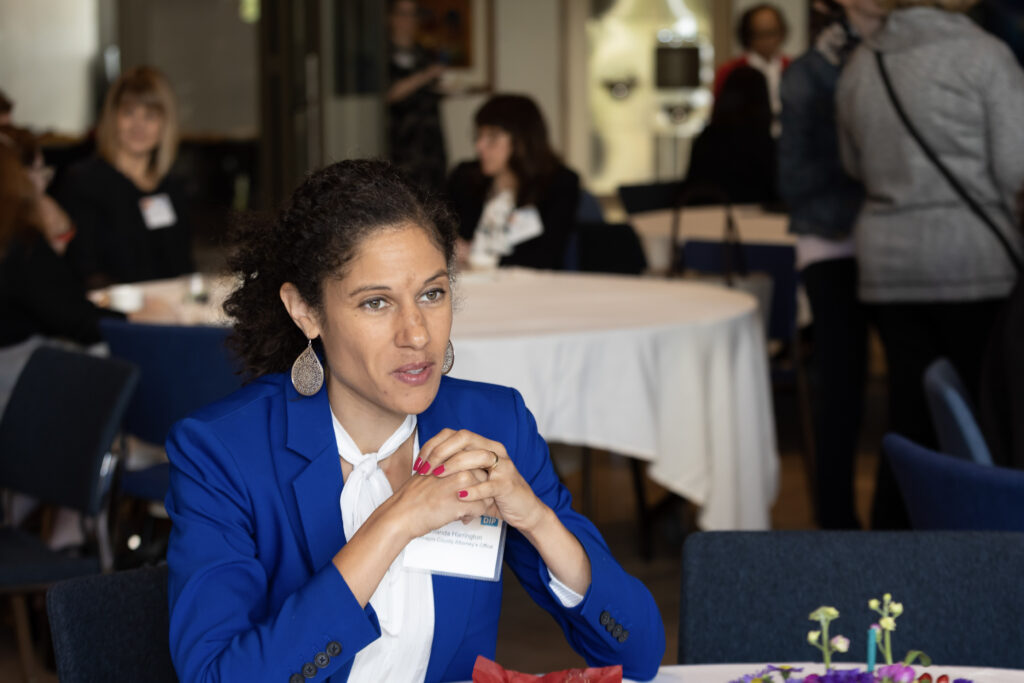
What skills or knowledge have you gained from being a social worker that you wish more lawyers would know?
The biggest thing I’ve learned from being a social worker is to remember that everyone is human and humans are part of complex systems. I’m a lawyer and social worker but also a mother, wife, daughter, sister, etc. I’m a mixed race, middle-aged woman with lived experience of trauma and two advanced degrees. I can’t turn off any parts of myself and I extend the same grace to others. None of us are defined by our worst or best days. We live and work in a world of gray despite going to school to learn the black letter of the law.
You are active in the legal community serving on the boards of Lawyers Concerned for Lawyers (LCL) and Minnesota Association of Black Lawyers (MABL). Why is it important for you to invest your time in professional organizations?
I was supported in my journey to becoming a lawyer and I want to give back and support others. I chose both LCL and MABL because they serve important functions. MABL supports the local Black legal community which is not as big as it should be. It can feel lonely being Black in the legal community and having access to other folks who have had similar experiences is so validating. LCL fills an important niche supporting wellness in the legal community. Lawyers are not known to be great at self-care, but we must take care of our own mental and physical health if we are going to be useful to anyone else. LCL does a great job reminding people of that message but also providing practical interventions when life gets hard. Both organizations are amazing and I’m honored to be part of them.
Who last inspired you professionally?
My biggest inspiration has and always will be my father, John Harrington. He’s a consummate public servant who models integrity, hard work and giving back to the community. And if I can pick someone else, the easy answer is former Professor Rachel Paulose. I met Ms. Paulose before she began teaching at St. Thomas. She’s my model of a strong woman of color in the legal industry. I couldn’t believe that she took the time to get to know me as a law student and provided career advice and support. My experience benefiting from her mentorship is one of the reasons I mentor law students now that I’ve graduated.
